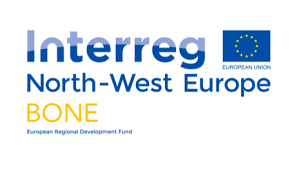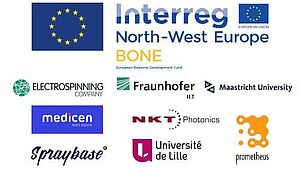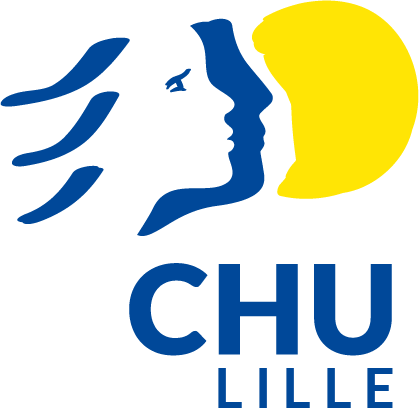Interreg BONE - Biofabrication of Orthopaedics in a New Era
This project has received funding from the Interreg North-West programme 2014-2020 co-funded by the European Regional Development Fund (AF_NWE497_BONE).

Duration of the project: 2017 - 2023
European project BONE: Eliminating the need for repeat fracture surgeries
A European transnational consortium led by Maastricht University (UM) will spend the next few years developing innovative bone implants. These implants will offer an alternative to repeat surgeries, prolonged medication use and donor tissue implementation following complex bone fractures. This innovative partnership will also give the participating regions a significant economic boost. The official kick-off of the international research project BONE, which stands for Biofabrication of Orthopaedics in a New Era, was hold on Thursday 6 July 2017 in Paris, France.
Bone Implants and Consortium
Research has shown that residents of Northwestern Europe are more likely to develop osteoporosis in comparison to their remaining EU counterparts. As a result, this region has the highest number of bone fractures within Europe, which has dramatic social and economic consequences. In the field of regenerative medicine, researchers have been working hard to develop innovative bone transplants that can enhance recovery times and reduce health care costs. In addition to UM, this international partnership consists of the universities of Leuven (Belgium) and Lille (France), Fraunhofer Institute for Laser Technology ILT in Aachen (Germany), a leading biomedical cluster in Paris (France) and enabling technology companies The Electrospinning Company (UK), NKT Photonics (International) and Spraybase (Ireland). Over the next four years, these partners will work together developing the technology needed to produce these implants. The project initiators will also develop a roadmap to manufacture and market these implants at the end of the project, to ensure long term impact of the actions.
Technology
At the basis of these smart bone implants lies an innovative technology, known as electrospinning. This technology enables researchers to create implants that have the potential to help the body regenerate healthy bone tissue. 'We want to improve the surface properties of the bone implants in a way that ensures the success of the regeneration process,' says Lorenzo Moroni, Professor of Biofabrication for Regenerative Medicine at UM. 'That's why we're combining melt electrospinning with other technologies. An added advantage is that this will help us expand the library of suitable materials for smart bone implants.' The technological hub of Project BONE lies in South Limburg (Brightlands Campus) and Aachen, with the preclinical tests to be carried out in Leuven and Lille.
Economic Impulse
Regenerative medicine is a relatively new discipline that is proving to be very promising for patients and valuable for the economy as well. One of the biggest European projects in this field is the virtual institute REGMED XB, with which Professor Moroni is affiliated. The project BONE will create fifteen jobs, two new products (improved technology and smart bone implants) and foster close collaboration between the multiple economic regions in Northwestern Europe, thereby helping them to expand their innovative capacity. BONE is financed by the Interreg NWE programme, a cross-border partnership that is financially supported by the European Fund for Regional Development.
Lead partner:
Partners:
Fraunhofer Institut für Lasertechnik
The Electrospinning Company Limited
Katholieke Universiteit Leuven, vertegenwoordigd door KU Leuven Research & Development
For more information: http://www.nweurope.eu/projects/project-search/bone-bio-fabrication-of-orthopaedics-in-a-new-era/

